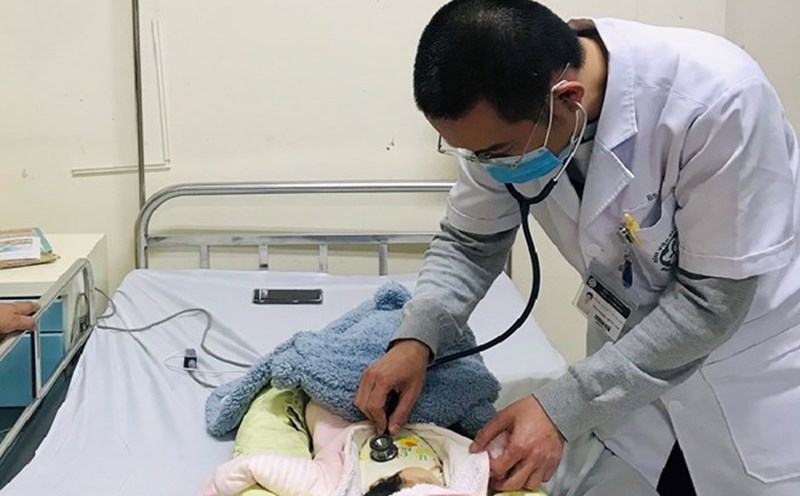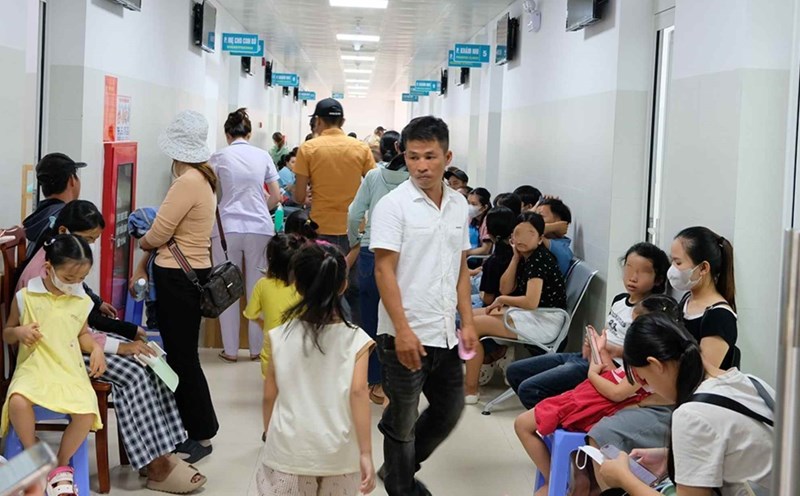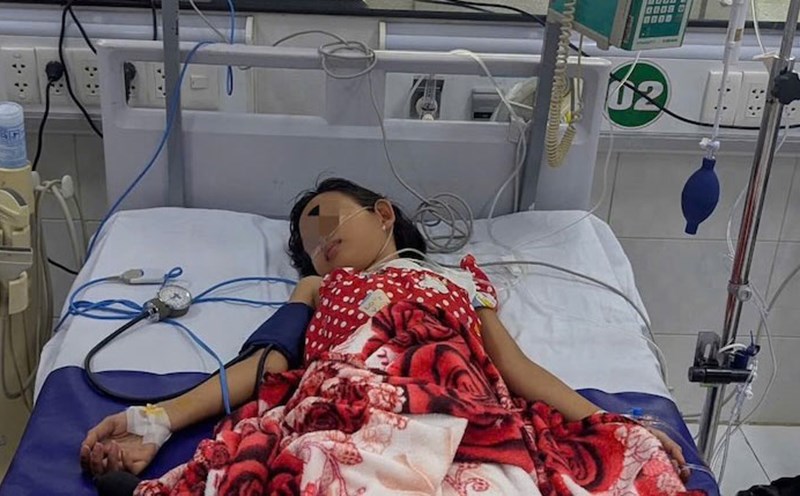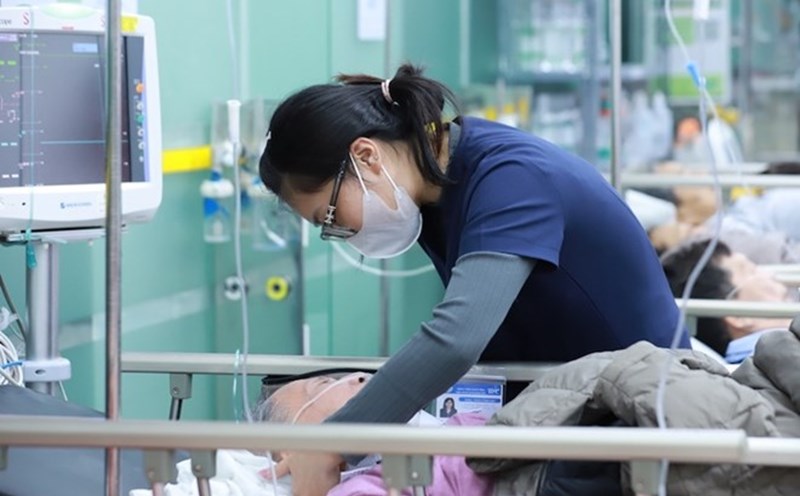The number of dengue fever cases and hand, foot and mouth disease increased rapidly
According to the Ho Chi Minh City Center for Disease Control (HCDC), the number of cases of dengue fever and hand, foot and mouth disease has been increasing continuously in recent weeks. Since the beginning of the year, Ho Chi Minh City has recorded more than 40,000 cases of dengue fever and nearly 24,000 cases of hand, foot and mouth disease.
At Children's Hospital 2, the number of pediatric patients hospitalized for these two diseases increased sharply compared to the same period last year, dengue fever increased by 160%, and hand, foot and mouth disease increased by 35%.
Experts say climate change and seasonal weather are factors that make epidemics more likely to break out. High temperatures, heavy rain, and high humidity are favorable environments for mosquitoes that transmit dengue fever and hand, foot and mouth virus to develop.
At the Department of Infectious Diseases - Children's Hospital 2, there are currently nearly 60 children being treated for dengue fever at warning and severe levels, along with more than 20 cases of hand, foot and mouth disease of level 2a or higher. According to Dr. Nguyen Dinh Qui, Head of the Department of Infectious Diseases, Children's Hospital 2, in the past two weeks, the number of children hospitalized for these two diseases has doubled, while the number of children being treated as outpatients is also 4-5 times higher than at the beginning of the month.
" Worryingly, the number of newborns and children with underlying diseases has increased significantly. This is a high-risk group, prone to serious complications if not detected and treated promptly, warned Dr. Qui.
He added that the weather in Ho Chi Minh City is in the transitional season, with heavy rain and humidity, causing more viruses and mosquitoes to form, increasing the risk of spreading the disease in the community.
Despite the complicated epidemic situation, Children's Hospital 2 has prepared response plans since the beginning of the year. In addition to dividing into separate treatment areas to avoid cross-infection between diseases, the hospital also plans to temporarily expand hospital beds in other departments when the number of children increases dramatically. Thanks to that, there has been no overload in treatment.
Doctors recommend that parents should take their children to the doctor early when they have symptoms of high fever, rash, crying a lot or are tired. At the same time, keeping the environment clean, killing mosquitoes, killing mosquito larvae and washing hands regularly are important measures to prevent both diseases.
Weather changes, respiratory diseases increase in adults and the elderly
According to Dr. Ho Quoc Khai - Deputy Head of the Department of Respiratory Internal Medicine, Gia Dinh People's Hospital, in recent days, the number of people coming for examination and hospitalization for respiratory diseases has increased by about 20% compared to previous months. Common diseases include pharyngitis, bronchitis, pneumonia, and many acute cases of chronic lung disease such as bronchial asthma, COPD or bronchial extensao.
The main causes are seasonal weather, high humidity, creating conditions for viruses and bacteria to grow. People with chronic respiratory diseases, the elderly, children or underlying diseases such as cardiovascular disease, diabetes, smoking are susceptible to and easily get worse.
In fact, the Department of Respiratory Internal Medicine has just received Mr. M.T.L. (49 years old, Ho Chi Minh City) suffered from acute pneumonia after buying medicine to take for three days without consulting a doctor. "I thought it was just a normal flu, who would have thought the disease would get worse so quickly. Now I see that I should not be subjective, Mr. M.T.L shared after stable treatment.
Similarly, Ms. N.T.M. (70 years old, Binh Thanh ward) was hospitalized for bilateral pneumonia after a few days of ineffective self-treatment. She has a history of high blood pressure and cerebral coronary artery disease, was actively treated with antibiotics and respiratory support, and has now stabilized and discharged from the hospital.
Doctor Ho Quoc Khai said that respiratory diseases are transmitted through three main routes: Drops when coughing, contact with infected surfaces, and inhaling air solution in closed air. Arbitrarily taking medication, especially antibiotics or corticosteroids, can make the disease worse.
To prevent the disease, people need to wear masks in crowded places, wash their hands regularly, keep their homes airy, limit smoke and dirt. People in high-risk groups should be vaccinated against influenza, whooping cough, whooping cough, RSV, while maintaining a reasonable diet and rest to increase resistance.











